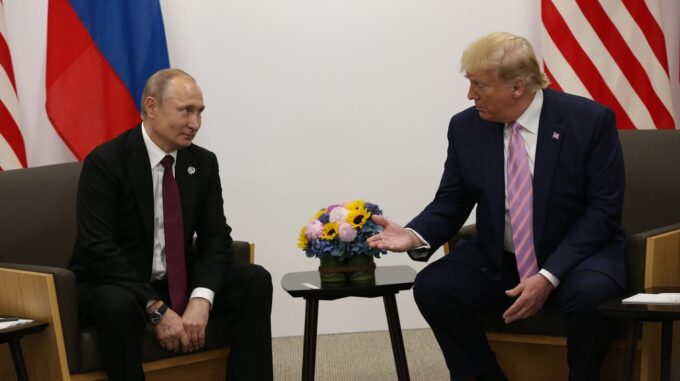According to the latest information released by journalists from Bloomberg Agency, the United States is preparing to present Russia with clear conditions for achieving a peaceful settlement of the conflict in Ukraine

Based on the obtained data, as part of its strategic peace plan, Washington intends to demand from Moscow a series of significant concessions related solely to Ukrainian issues and regional security. The key focus is on Russia's recognition of Ukraine's right to its own defense capacity, including the creation and operation of its own armed forces, as well as the development of its defense industry. One of the core points of the American position is the return of the Zaporizhzhia Nuclear Power Plant (ZNPP) under Ukrainian jurisdiction — the largest in the country and one of the most powerful in Europe. This issue is expected to become an important component of the future peace agreement, since control over the ZNPP significantly influences energy security and the stability of Ukrainian sovereignty. Sources familiar with internal consultations within the U.S. administration indicate that President Donald Trump’s special envoy, Steve Vitkoff, already plans to raise this issue at his upcoming meeting with Russian President Vladimir Putin. According to these sources, during the dialogue, the U.S. aims to achieve Russia’s full control over the Zaporizhzhia NPP and envisages its subsequent transfer under American supervision. This would allow the U.S. to supply electricity to regions currently under the control of different parties to the conflict — both under Ukrainian sovereignty and Russian occupation. Such a move, according to the American administration’s plan, could become a significant element in stabilizing the energy situation in the region. Equally important is the productive cooperation regarding the crossing of the Dnipro River — a strategic waterway that holds great importance for control and resource supply. The U.S. will also pursue the return of significant parts of the occupied Kharkiv region under Ukrainian control, which has become one of the main priorities of Ukrainian diplomacy. Unfortunately, representatives of the U.S. National Security Council, the State Department, and Steve Vitkoff himself have refused to comment on these reports, leaving the question of the U.S. future steps in this direction open. At the same time, earlier reports indicated that the Trump administration had already handed Ukraine in Paris a one-page document officially positioned as a “final proposal” for a peaceful settlement. This document expressed U.S. readiness to recognize Russian control over Crimea, as well as to ease sanctions currently imposed on Moscow. However, the Ukrainian leadership’s stance remains firm — Kyiv insists that the internationally recognized Ukrainian sovereignty over Crimea is inviolable, and Ukraine is not prepared to accept Russia’s occupation actions. These proposals have caused significant tensions within the European Union and among U.S. allies. In particular, the Financial Times reports that several European diplomats are concerned that the unilateral nature of the U.S.-proposed “peace agreement” project and its approval by Moscow could undermine transnational security. Such actions might lead to a disruption of transatlantic solidarity and even call into question the upcoming NATO summit scheduled for late June. Amid these risks, public debates are intensifying around the future of conflict resolution in Donbas and other regions. Will peace be possible under such conditions, or will shared values and security be preserved? The question remains open. As the situation worsens daily and geopolitical games escalate, the global community must exercise maximum caution and responsibility.

